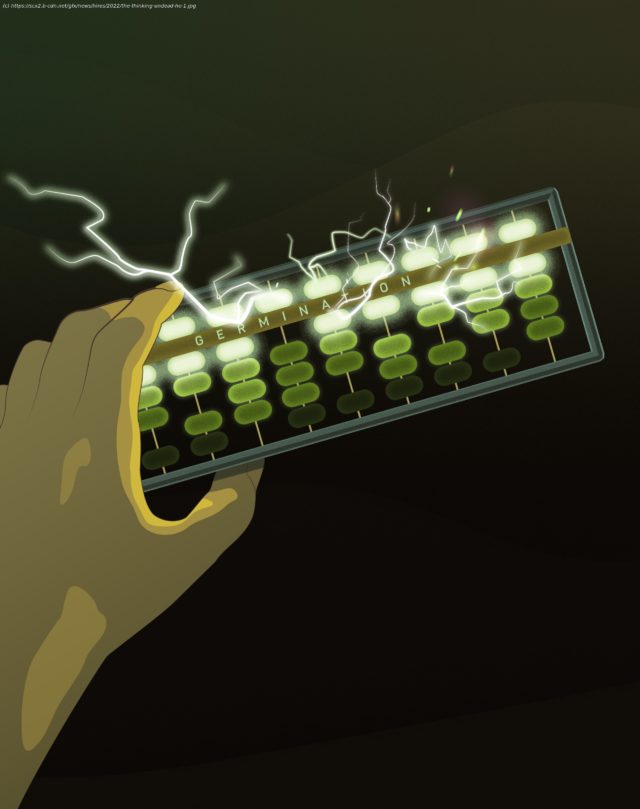Facing starvation and stress conditions, some bacteria enter a dormant state in which life processes stop. Shutting down into a deep dormancy allows these cells, called spores, to withstand punishing extremes of heat, pressure and even the harsh conditions of outer space.
October 6, 2022
Facing starvation and stress conditions, some bacteria enter a dormant state in which life processes stop. Shutting down into a deep dormancy allows these cells, called spores, to withstand punishing extremes of heat, pressure and even the harsh conditions of outer space.
Eventually, when conditions become favorable, spores that may have been dormant for years can wake up in minutes and spring back to life.
Spores wake up by re-hydrating and restarting their metabolism and physiology. But until now scientists did not know whether spores can monitor their environment “in their sleep” without waking up. In particular it was not known how spores deal with vague environmental signals that do not indicate clearly favorable conditions. Would spores just ignore such mixed conditions or take note?
University of California San Diego biologists have solved this mystery in a new study published in the journal Science. Researchers in the School of Biological Sciences discovered that spores have an extraordinary ability to evaluate their surrounding environment while remaining in a physiologically dead state. They found that spores use stored electrochemical energy, acting like a capacitor, to determine whether conditions are suitable for a return to normal functioning life.
“This work changes the way we think about spores, which were considered to be inert objects,” said Gürol Süel, a professor in the Department of Molecular Biology. “We show that cells in a deeply dormant state have the ability to process information.






